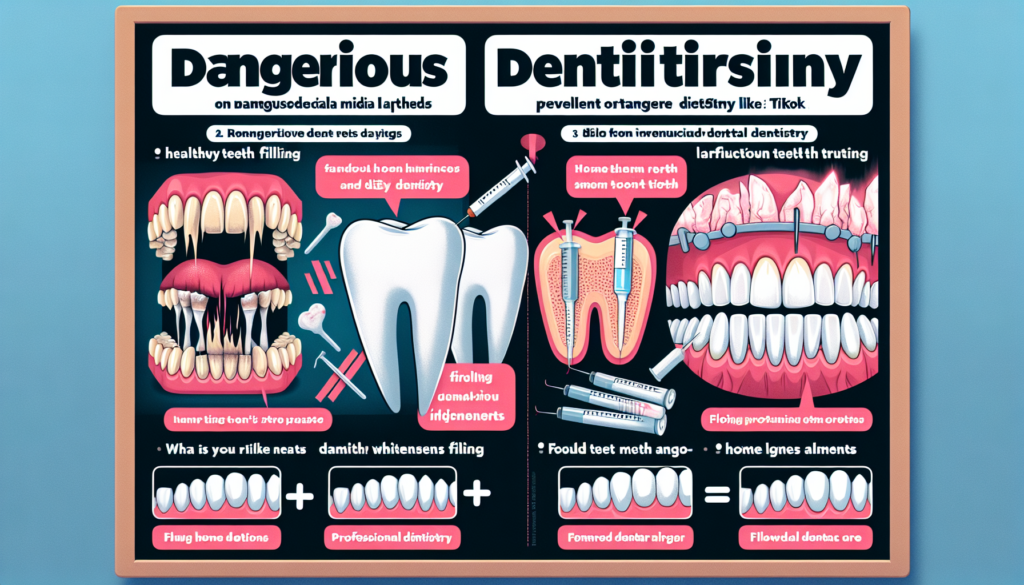Canada Launches New Dental Care Plan for Seniors: Everything You Need to Know About the 2024 Canadian Dental Care Plan (CDCP)
Just like small daily habits can transform your life, consistent dental habits can create a lifetime of confident, healthy smiles. Learn more in The Habit Method.
Introduction: Canada’s New Dental Care Plan for Seniors
Beginning May 1, 2024, Canada’s long-awaited Canadian Dental Care Plan (CDCP) officially expands access to affordable dental services for seniors. This marks a historic milestone in the country’s journey toward more equitable healthcare for Canadians of all ages. The Government of Canada announced this program to reduce financial barriers that have long prevented older adults from seeking necessary dental care.
Oral health is intrinsically tied to overall health. Studies continue to show strong links between untreated oral disease and chronic conditions such as diabetes and cardiovascular disease. With rising costs of living and limited insurance coverage, many older Canadians have postponed or avoided dental visits altogether. The CDCP aims to change that narrative by making dental care a right, not a luxury.
Sources: Health Canada, Canadian Dental Association
What is the Canadian Dental Care Plan (CDCP)?
The CDCP is a new federal dental program designed to make oral health care more affordable and accessible for Canadians who lack private dental insurance and have lower household incomes. Administered federally but implemented through licensed providers nationwide, it brings dental care closer to Canadians who’ve gone years without proper treatment.
This government-funded initiative aligns with Canada’s broader vision of universal healthcare. By including dental care in a publicly supported framework, the CDCP reinforces the principle that oral health is a fundamental component of overall well-being. According to federal estimates, the program is set to benefit up to nine million Canadians once fully implemented, with seniors being among the first eligible groups.
— Government of Canada: Department of Health, 2024
Who Qualifies for the New Senior Dental Benefits in Canada?
Not every Canadian automatically qualifies for the program. The government has outlined specific eligibility criteria for 2024 and beyond:
- Age Requirement: The initial rollout focuses on adults aged 65 and older.
- Income Limit: Seniors with an annual adjusted family net income below $90,000 may qualify; those under $70,000 typically pay no co-payments.
- Insurance Exclusion: Applicants must not have access to any private dental insurance plan.
- Residency: All provinces and territories are included in the program’s rollout, though provider participation may vary.
New eligibility categories are expected in future phases, extending the CDCP to Canadians with disabilities, children, and families without private coverage.
— Health Canada, Canadian Dental Care Plan Eligibility Overview 2024
What Dental Services Are Covered Under the CDCP?
The CDCP coverage list includes a broad array of preventive, diagnostic, and restorative services. Coverage levels may depend on clinical necessity, income, and provincial agreements, but generally include:
- Routine dental exams and cleanings
- Dental X-rays and diagnostic imaging
- Fluoride treatments and scaling
- Fillings for cavities
- Root canals and simple extractions
- Partial and full dentures
- Emergency dental services
Some complex procedures such as orthodontic treatment or cosmetic dentistry (e.g., whitening) may not be covered. The goal is to prioritize essential dental care that supports function, comfort, and quality of life — particularly for those experiencing pain or difficulty eating due to missing or damaged teeth.
— Canadian Dental Association, 2024
How to Apply for the Canadian Dental Care Plan
Applying for the CDCP is straightforward, whether you’re doing it online or by mail. Here’s how seniors can get started:
- Check your eligibility: Ensure you meet the age, income, and insurance criteria listed above.
- Receive an invitation: In the initial months, eligible seniors will receive letters from Service Canada inviting them to apply.
- Gather documentation: Have your Social Insurance Number, income tax information, and proof of residency ready.
- Submit your application: Once invited, applications can be submitted securely through the Government of Canada’s website or by phone.
- Find a CDCP dentist: After approval, seniors can begin booking appointments with participating dental professionals enrolled in the CDCP network.
Applicants can track updates and find additional information on the Government of Canada’s dental care page or by contacting their local Service Canada office.
Benefits of the Canada Dental Care Plan for Seniors
Access to affordable dental care doesn’t just protect your smile — it can help protect your heart, digestion, and overall health. Here are the key advantages seniors can expect from the CDCP:
- Prevention and early detection: Regular checkups can catch small problems before they lead to costly complications.
- Better nutrition: Seniors with stable dentition can enjoy a wider range of foods, improving nutrient intake and digestion.
- Lower medical costs: Evidence shows that oral health interventions can reduce hospital visits linked to poor oral hygiene.
- Improved quality of life: By restoring oral comfort, confidence, and social engagement, dental care contributes directly to emotional wellness.
Financially, the plan alleviates cost barriers that have long discouraged many from booking regular checkups. Even minimal coverage for cleanings and fillings can make an enormous change in seniors’ health and independence.
— Journal of the Canadian Dental Association, 2023: Oral Health and Systemic Health Connections
What This Means for the Future of Health Equity in Canada
The Canada dental care plan 2024 represents a major leap forward in addressing health inequities. Historically, dental care has been one of the few key health services excluded from the universal system. By including oral care, Canada joins a select group of nations recognizing dental health as integral to overall well-being.
Experts believe that improved access will reduce emergency-room visits for dental pain and infections, lowering strain on hospitals. It also opens the door for future expansions to children, people with disabilities, and families with limited means. As more Canadians gain coverage, the gap between income groups in oral health outcomes will gradually narrow — an essential step toward national health equity.
— Canadian Public Health Association, 2024
How Seniors Can Prepare for the New CDCP
While waiting for your CDCP application to process or your dentist to join the program, there are steps you can take to maintain strong oral health at home:
- Brush twice daily using fluoride toothpaste for at least two minutes.
- Clean between teeth daily with floss or an interdental brush.
- Stay hydrated to reduce dry mouth, which is common due to medications.
- Maintain a balanced diet rich in calcium, vitamins C and D, and low in added sugars.
- Avoid tobacco and limit alcohol to support gum health and reduce cancer risk.
- Schedule routine checkups as soon as your plan coverage begins to build preventive habits early.
As always, prevention is the most powerful form of care. Small steps each day lead to lasting health gains.
Frequently Asked Questions (FAQs)
1. When does the Canadian Dental Care Plan start for seniors?
The CDCP began offering services to eligible seniors on May 1, 2024. Registration and application invitations began rolling out earlier in the year.
2. How do I know if my dentist participates in the CDCP?
Participating dentists must register with the program. You can confirm by asking your dental provider directly or checking the list of enrolled clinics on the Government of Canada’s website.
3. Is the plan truly free for seniors?
For households earning less than $70,000 per year and without private coverage, most dental services are covered at no cost. Households between $70,000 and $90,000 may have partial co-payments based on income tier.
4. Will the CDCP cover dentures or implants?
The plan covers dentures as a restorative option for missing teeth, helping seniors maintain comfort and nutrition. However, dental implants are not currently included as they are considered elective or cosmetic.
5. What documents do I need to apply?
You will need your Social Insurance Number (SIN), most recent income tax return, and proof of residence in Canada. Keep your notice of assessment handy for verifying eligibility.
6. How long will it take for my coverage to start after applying?
Processing times vary depending on your province and the volume of applications. Most seniors can expect active coverage within a few weeks after approval.
7. Can I still use my existing provincial dental programs?
Yes. In some cases, provincial programs will coordinate with CDCP benefits to ensure maximum coverage without duplication of services.
Conclusion
Canada’s new dental care plan for seniors is more than a policy — it’s a promise to promote fairness, dignity, and better health for older adults nationwide. By investing in preventive oral care, the CDCP helps seniors live healthier, happier, and more confident lives.
Just like reinforcing positive daily routines leads to lifelong progress, maintaining consistent dental hygiene and checkups creates the foundation for lasting wellness. Explore ways to build healthier habits with The Habit Method.
Post Disclaimer
DentalUp is for educational purposes only and cannot accept personal dental information such as x-rays, photos, or treatment details. See full disclaimer here.





